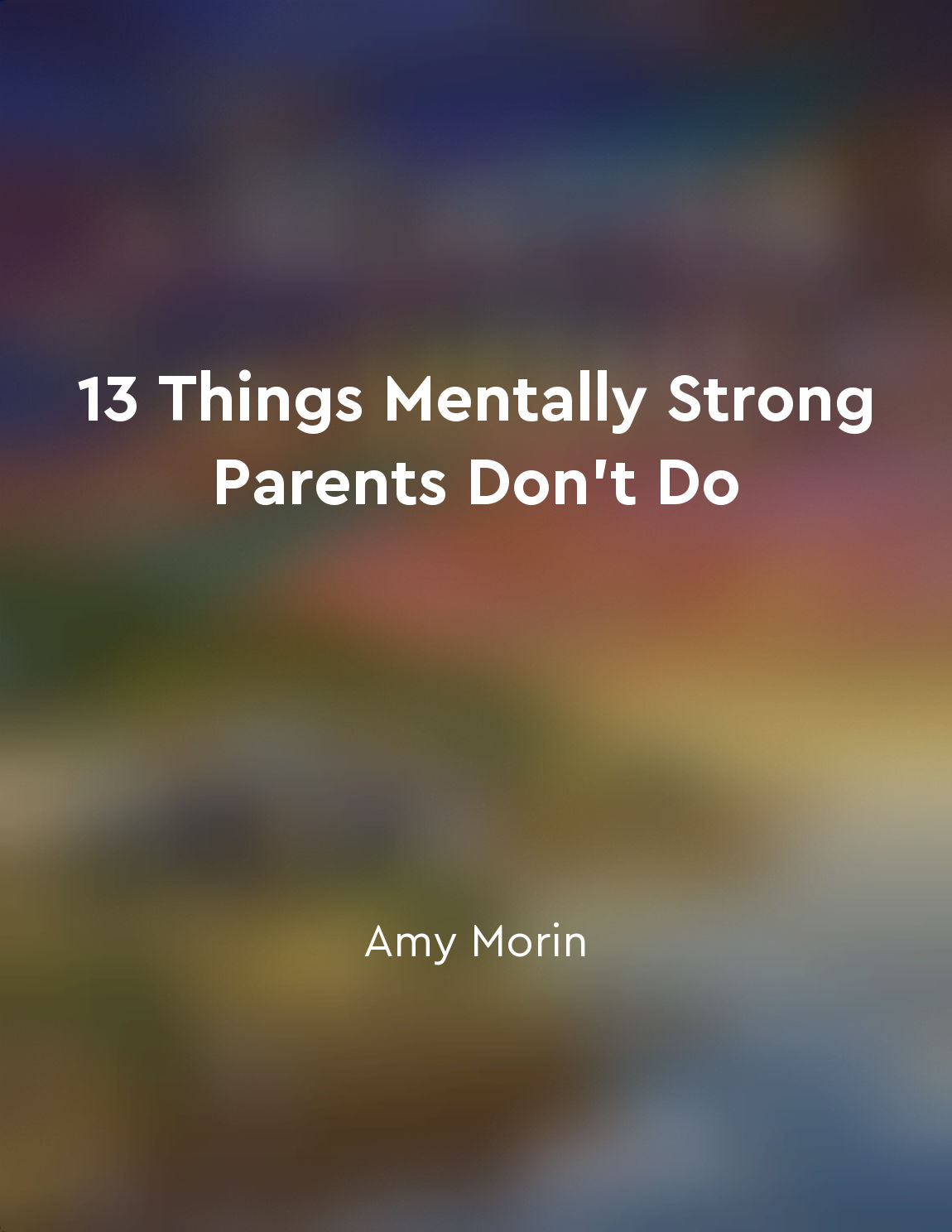Audio available in app
Stop Projecting Your Own Unresolved Issues onto Your Child from "summary" of 13 Things Mentally Strong Parents Don't Do by Amy Morin
When you project your own unresolved issues onto your child, you're essentially burdening them with problems that aren't theirs to bear. Whether you're dealing with past traumas, unmet goals, or unhealed wounds, it's crucial to address these issues outside of your relationship with your child. Your child isn't responsible for fixing your problems or making you feel better about yourself. It's unfair to expect them to carry the weight of your emotional baggage. Instead, seek out professional help, talk to a therapist, or confide in a trusted friend or family member. By addressing your own issues head-on, you can prevent them from seeping into your relationship with your child. Remember, your child looks to you for guidance, support, and stability. If you're projecting your own unresolved issues onto them, you're not providing the healthy environment they need to thrive. Take the time to reflect on your own emotions and behaviors. Are you reacting to your child based on your own insecurities, fears, or past experiences? By becoming more self-aware, you can start to recognize when you're projecting your own issues onto your child and take steps to address them in a healthier way.- It's essential to create a positive and nurturing environment for your child—one that is free from the weight of your own unresolved issues. By working through your problems independently, you can build a stronger, more authentic relationship with your child based on love, support, and understanding.
Similar Posts
Celebrate small victories
When it comes to parenting, it can be easy to get caught up in the big picture - the long-term goals and the major milestones. ...

Allow yourself time to grieve any losses associated with your decision
It is important to acknowledge and honor any feelings of loss that may arise when making a decision, especially one as signific...

Encourage a healthy coparenting dynamic
To establish a healthy coparenting dynamic, it is crucial to prioritize the well-being of your children above all else. This me...
Lead with empathy and compassion
As parents, it is crucial to approach every situation with empathy and compassion. By leading with empathy and compassion, we a...

Real love starts with loving yourself
The first lesson you need to learn, my dear, is that real love does not begin with someone else. It starts with you. Yes, you h...

Emphasize the importance of positive interactions and experiences
Fostering positive interactions and experiences is the cornerstone of attachment parenting. It lays the foundation for strong e...
Establishing healthy boundaries is a form of selfcare in toxic relationships
Establishing healthy boundaries is a form of selfcare in toxic relationships. When we talk about boundaries, we're referring to...

We need to create a strong bond with our children
The foundation of our relationship with our children is the bond we share with them. This bond is not just important, it is cru...
Plan ahead to address potential challenges
When caregivers plan ahead to address potential challenges that may arise with a child, they are taking proactive steps to prev...

Practice gratitude for what you have
Practicing gratitude for what you have is a foundational step on your journey toward becoming the love you seek. It's easy to g...


